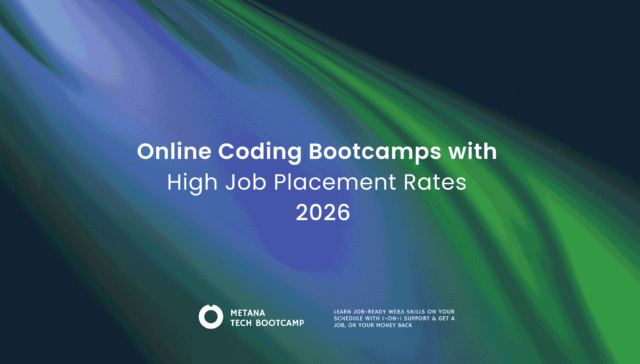TL;DR
Yes! If you want to learn React 2025, it remains a top choice for web development with strong job demand.
Why? React is fast, scalable, and works well with other tools like Next.js and React Native.
Start with JavaScript basics, then learn React components, state, and props.
Build projects (to-do apps, weather apps) to practice.
Stay updated—React evolves, but its core concepts remain valuable in learn React 2025.
What is React?
If you’re new to React, it’s an open-source JavaScript library created by Meta (formerly Facebook). It helps developers build fast, interactive, and dynamic websites and web applications. Many big companies like Netflix, Instagram, Airbnb, and Uber use React in their tech stacks.
If you’re considering to learn React 2025, it’s important to understand its core concepts and what makes it so popular for modern web development.
Why Learn React 2025
React continues to be one of the most popular and practical tools for building modern websites and applications. Here’s why learn React 2025 is a smart choice:
1. Lots of Job Opportunities
React developers are in high demand across companies of all sizes. From tech giants to fast-growing startups, businesses prefer React for building user interfaces because it’s efficient, scalable, and widely adopted. By choosing to learn React 2025, you open doors to rewarding job opportunities and competitive salaries.
2. Big & Helpful Community
With millions of developers worldwide, React has one of the largest and most active communities in web development. This means you’ll find countless tutorials, free learning resources, and quick answers to coding problems. Whether you’re stuck on a bug or want to learn best practices, the React community has your back when you learn React 2025.
3. Reusable Pieces Save Time
React’s component-based approach lets you build UI elements (like buttons, forms, or menus) once and reuse them across your project. This saves time, reduces repetitive code, and makes your applications more consistent and easier to maintain. As you learn React 2025, you’ll appreciate how this time-saving feature improves your workflow.
4. Works with Other Popular Tools
React doesn’t lock you into a single way of building apps—it works great with other technologies. You can combine it with Next.js for server-side rendering, React Native for mobile app development, or state management tools like Redux. This flexibility makes React a future-proof skill when you learn React 2025.
5. Fast & Smooth Performance
Thanks to its virtual DOM (a smart way of updating only what changes), React ensures your apps run smoothly and load quickly. Users enjoy fast, responsive interfaces, and developers spend less time optimizing performance. If you want to learn React 2025, you’ll gain the tools to optimize for the best user experience.

Challenges of Learning React 2025
While React is a great tool for web development, it does come with some challenges you should know about. First, React changes and improves often, which means you’ll need to keep learning to stay updated. This can be exciting but also requires time and effort.
Another thing to consider is competition. Since React is so popular, many developers already know it. To stand out, you’ll need to build strong skills and maybe learn additional technologies.
Finally, React isn’t the only option out there. Newer frameworks are becoming popular and might be better for certain projects. While React is still widely used, it’s good to be aware of these alternatives.
Despite these challenges, React remains a valuable skill—you just need to be prepared to keep growing as a developer after you learn React 2025.
Is It Still Worth Learning React in 2025?
Yes! React remains a top choice for building websites and apps. Big companies and startups alike use it every day, so knowing React means more job opportunities.
What makes React special? First, it has a huge community – you’ll always find help when needed. Second, it works well with other tools, letting you build all kinds of projects. Finally, React apps run fast and can grow as your needs change.
If you want a useful skill that won’t go out of style, learn React 2025. It’s trusted, flexible, and here to stay.
How to Start Learning React?
First, get comfortable with JavaScript basics—learn how functions, arrays, and objects work. These are the building blocks you’ll need.
Next, dive into React’s core concepts. Focus on understanding components (reusable pieces), state (data storage), and props (passing information).
Then build simple apps to practice. A to-do list or weather app are perfect first projects. They teach you how React works in real situations.
As you improve, try more advanced features like hooks for cleaner code, routing for multi-page apps, and connecting to APIs.
Finally, show your skills by helping with open-source projects or creating your own portfolio. This proves you can use React in real-world situations.
Take it step by step, and you’ll be building React apps before you know it!
Final Thoughts
Well, the answer is clear! Learn React 2025, and you’ll gain a top choice for web development with strong job demand, excellent performance, and great flexibility. While you’ll need to keep learning as it evolves, React’s wider use and supportive community make it a smart investment.
For beginners, start with JavaScript basics before diving into React. Build simple projects first, then tackle advanced concepts. With consistent practice, you’ll be able to gain the valuable skills that keep you competitive in the job market.
In 2025, React is still worth learning – it’s proven, powerful, and here to stay.
FAQs
Is React still popular in 2025?
- Yes! React remains one of the most widely used front-end libraries, trusted by companies like Netflix, Airbnb, and Uber.
Will learning React help me get a job?
- Absolutely. React developers are in high demand, and many companies look for this skill when hiring front-end or full-stack developers.
Should I learn JavaScript before React?
- Yes. Since React is a JavaScript library, you should understand core JavaScript concepts (functions, arrays, objects) first.
Are there better alternatives to React?
- Frameworks like Svelte, Vue, and Solid.js are growing, but React’s maturity, ecosystem, and job market make it a safer long-term choice.
Is React hard to learn?
- React has a learning curve, but its component-based structure makes it intuitive once you grasp the basics. Start small and build real projects to improve.







